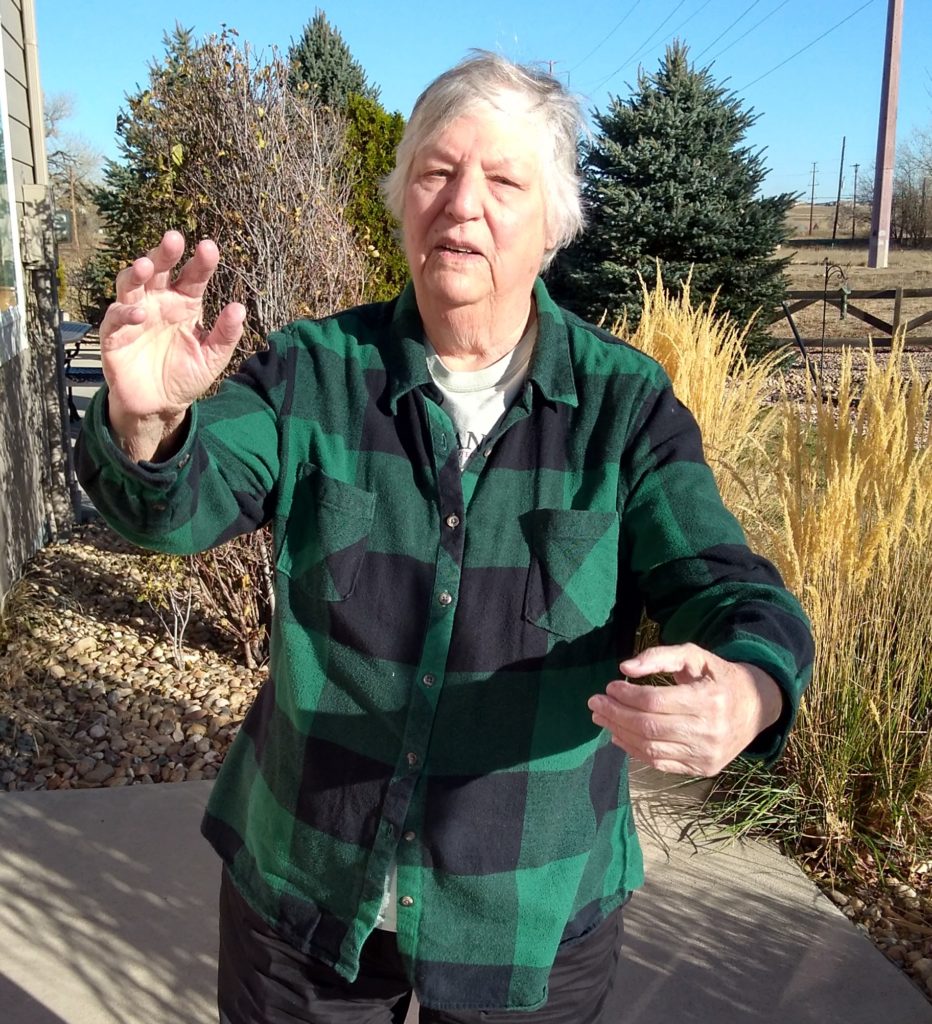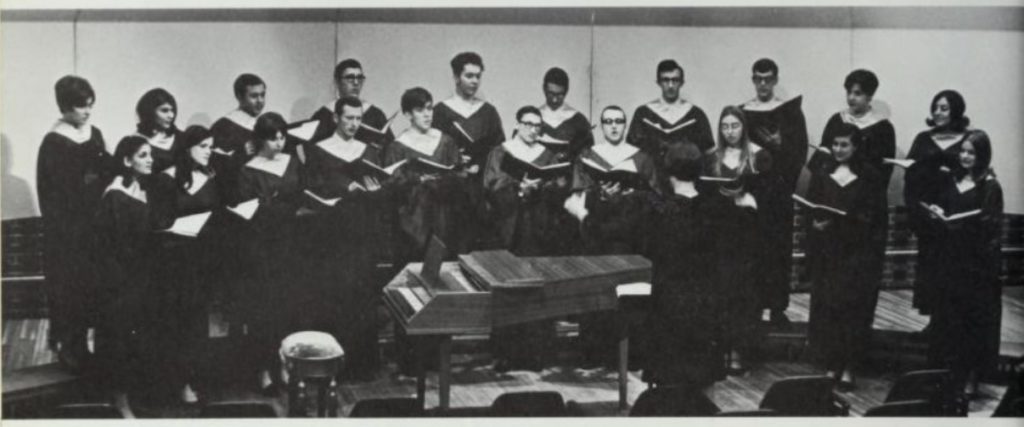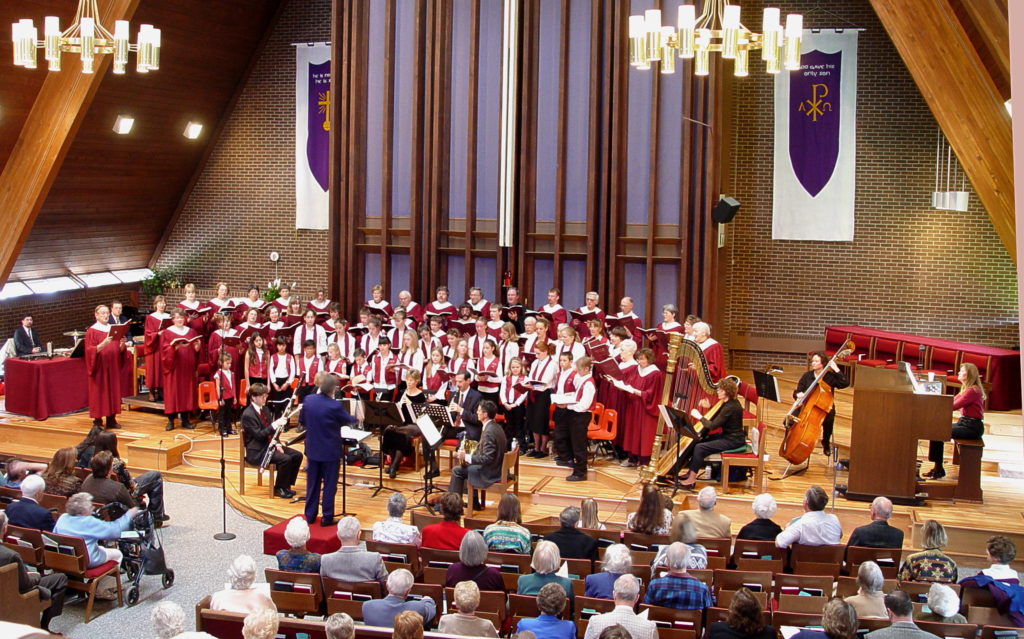Our Stories: Max Mandell
By Nancy DiLaura

Max Mandell’s career as a choral conductor started with an act of courage that surprised even her. During a moment when her high school choir director stepped away from the podium, the 16-year-old introvert left her chair in the alto section and walked to the front of the class to lead the group. Much to her amazement, the choir responded and started singing.
“I was a very conscientious, obedient student, but I just had this hunger. I felt this strong need to conduct, so I seized the opportunity,” recalls Max, a Fellowship member since 2016. Later, she would convince the choir director to appoint her as student conductor. It was the start of a musical career that would span almost 50 years in Chicago and Boulder.
Max’s love for music was evident from childhood. Her mother first took note of it in Max’s baby book. “By the time I was 18 months old, she had taught me all the (WWII) war songs,” says Max. She remembers singing with her mother as she fixed her hair.
Although there were no formal music programs in the northside Chicago elementary schools Max attended, she recalls that a sixth-grade teacher with some music background taught her students to sing in parts. “That was the first time I sang in an organized way with other people, and I can remember what that did to me. I was absolutely astonished by the sound of voices together and I felt an internal shift. I recognized, even as a sixth grader, that something important was happening.”
Another major shift changed the course of Max’s life toward the end of her second year in college. She’d enrolled at the University of Illinois-Chicago with thoughts of majoring in the sciences: anthropology, geology, or archaeology. But one of the first things she did was audition for the choir. The music department at the time consisted of one professor, Ed Fissinger. Fissinger took Max under his wing, and by the time she was a sophomore, she was conducting his choir, too. When he suggested that she could be a professional choral conductor, she says, “I fell off my chair. I’d not thought of pursuing choral conducting in college because I had no formal background. But he was an incredible musician, so I trusted him.”

With his encouragement, Max enrolled in the Chicago-based American Conservatory of Music where she completed bachelor’s and master’s degrees in vocal performance. In addition to her studies at the Conservatory, she continued to work for Fissinger and directed his choir off and on. The next step in her fledgling career was to secure a conducting position of her own, which she did with the small choir at Golgotha Lutheran Church in Chicago. And when Fissinger moved to North Dakota, Max took his place at the University of Illinois – Chicago.
“I knew if I were going to continue as a university choral conductor, I was going to need a Doctor of Musical Arts,” says Max, “and, at the time, there were three schools that offered the program, but only one was near the mountains and that was CU.” Moving to Boulder to enroll at the university fulfilled a childhood dream of living out West.
To help support herself, Max took a part-time position with Mountain View United Methodist Church in Boulder, where she served as Director of Music, supervising a small staff and conducting three choirs. She held the position at Mountain View for 10 years before “reinventing” herself as a successful insurance agent. Even then, she wasn’t done with conducting. Over the years, she would return to the Methodist congregation for periods of time when she was needed at the podium until she stepped off for the last time 14 years ago.

Mountain View United Methodist Church in Boulder
“I’ve never completely disconnected from choral music, even if I’m not conducting,” says Max. “It’s in me.
“When I was in high school, I knew how I wanted music to sound. There’s something that comes from one’s soul that I cannot explain and I don’t know why I have that. But when I look at a piece of music, I know how I want it to sound. Unequivocally. Period. Exclamation point.”
Max still conducts when she’s listening to music. She says it’s like riding a bike. You never forget how.
While there are many characteristics of a good choral director, Max says the most important is one that cannot be learned. It’s innate musicality.
“If you don’t have it, you’re never going to get there because it can’t be taught. It’s not like learning to play an instrument well. This is about breathing life into music. It’s about interpretation. It’s a spiritual experience.
“The only way a conductor can practice his or her art is through bringing people together to make music. I find that incredibly profound.”
